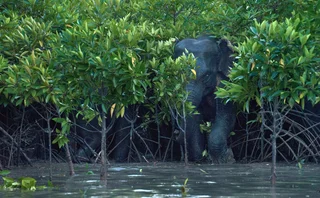Emissions Europe – House of the Year: BNP Paribas
Energy Risk’s 2010 European Emissions House of the Year award goes to global investment bank BNP Paribas for its pioneering work in the carbon markets over the past 12 months, which has included two groundbreaking carbon deals – the first ever Russian Joint Implementation (JI) project and the largest ever African Clean Development Mechanism (CDM) project.
Simon Dent, head of emissions trading at the bank, says BNP’s global reach has enabled the team to capitalise on opportunities worldwide. “BNP’s extensive franchise extends to most of the developing and emerging countries and we’ve leveraged offices and markets around the globe to access the opportunities available,” says Dent.
BNP Paribas matches its expertise in carbon projects with a strong trading presence and is one of the largest liquidity providers in the European emissions trading market. Its traded volumes in the European Union’s Emissions Trading Scheme (EU ETS) increased threefold between 2008 and 2009 and the bank is providing risk management services for over 100 corporates who are active in emissions trading.
Dent pinpoints the bank’s deals with Russian oil company TNK-BP as the team’s greatest achievement of 2009. Two deals were signed in November 2009; the first was for the purchase of carbon credits generated by the Samotlorneftegas project, which will capture and utilise 90 million cubic metres of gas previously flared at the Samotlor oil field in western Siberia. The second was for the development of two emissions reduction projects in Vakhitovskoe and Rodnikovskaya, also located in western Siberia.
The completion of the first agreement, Russia’s first ever JI project, signified BNP’s key role in cracking one of the toughest markets for JI.
Under the Kyoto Protocol, JI allows Annex I developed countries to work together on a carbon reduction project and generate Emission Reduction Units (ERUs) to be traded on the EU ETS. When the mechanism was first introduced in 2005, market participants had high hopes for Russia and its huge potential for emissions reduction. However, the Russian government was slow to clarify the legislative procedures and, as a result, the country has failed to fulfil its potential.
According to Dent, timing was key to completing this deal: “Other competitors had tried to do JI early on in Russia, but we took the view that JI was not going to happen at that stage, we wanted to wait until the timing was right for us.”
BNP Paribas’ strong relationships with senior figures from both the French and Russian governments were also key factors in pushing the deal forward. BNP Paribas had advised TNK-BP on several opportunities for carbon deals in relation to project finance over the past few years, creating a long-standing relationship.
In March this year, the bank closed the largest ever CDM project Africa has seen to date, by winning the competitive tender to arrange African electricity producer Eskom Holdings’ Compact Fluorescent Light carbon project. It is estimated to be worth up to 2,500,000 allowances per year through to 2012, generating some €100,000,000 ($133,652,118) in revenue.
Working with African CDM presents a challenging environment for investment banks. Africa lacks the strong industrial focus of other developing nations prominent in CDM such as India and China and, from a political perspective, African governments have been slow to buy in to the carbon market where government support is essential for progress.
Despite these challenges, Dent says the bank’s carbon team has been keen to take advantage of Africa’s potential. “We’re particularly excited about agricultural and forestry opportunities in Africa. It’s clearly the area where Africa can play catch-up in terms of issuing emission credits and sourcing investment into emission reduction projects,” he says.
Looking forward, BNP Paribas plans to invest substantially in forestry. The Reducing Emissions from Deforestation and Forest Degradation in Developing Countries (REDD) Programme is not yet recognised under the UNFCCC, but Dent sees this changing in the near future, particularly under amendments to US Climate bills. BNP is involved in three forestry projects, including two in Africa and one in South America. “We’re taking the view that forestry is too big to ignore,” says Dent.
Click here to view this article in PDF format
More on Awards
Environmental products house of the year: ENGIE
Energy giant signs raft of forward-thinking environmental deals in Apac
Newcomer of the year: Marex
Commodities and financial services firm expands rapidly across Apac region, entering multiple new markets
Voluntary carbon markets house of the year: Marex
Marex’s support of mangrove projects provides high-quality credits for clients and socio-economic benefits for local communities
OTC trading platform of the year: Marex
Marex’s Agile platform registers impressive volume and client growth in Asia
Technology advisory firm of the year: KWA Analytics
With a focus on strategy and scalability, KWA Analytics improves clients’ operations in Japanese power, biofuels and certificates
Commodities technology house of the year: Topaz Technology
Strong revenue growth, Asia focus and a unique approach to unifying physical and financial risk
Electricity house of the year: Provincial Electricity Authority (PEA)
Power company uses renewables to help Thailand attract energy-intensive manufacturers amid recent geopolitical shifts
Energy Risk Asia Awards 2025: the winners
Winning firms showcase the value of prudent risk management amid challenging market conditions







